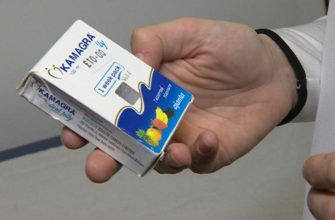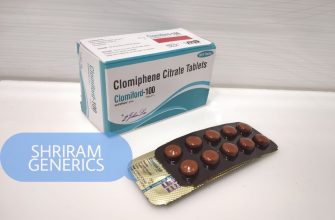Consider switching to generic vardenafil to potentially save hundreds of dollars on your erectile dysfunction medication. You’ll often find generic options priced significantly lower, sometimes less than a tenth of the cost of brand-name Levitra. What factors contribute to this dramatic price difference?
The high cost of Levitra primarily stems from the enormous investment pharmaceutical companies make in research, development, and marketing. Before a new drug like Levitra hits the market, the manufacturer, Bayer in this case, spends years, sometimes decades, conducting clinical trials and seeking regulatory approval from bodies like the FDA. This process easily costs upwards of $2 billion per drug. These costs are then factored into the price of the medication.
Another major contributor is the patent protection afforded to Levitra. For a set period, usually around 20 years from the date of application, Bayer holds exclusive rights to manufacture and sell the drug. This monopoly allows them to set a higher price to recoup their investment and generate profit. Once the patent expires, other companies can produce generic versions, leading to increased competition and lower prices for consumers. This is why you see generic vardenafil options become available at a lower cost.
Furthermore, marketing and advertising expenses significantly inflate Levitra’s price. Drug companies spend considerable sums promoting their medications to both doctors and patients. These promotional efforts are designed to build brand recognition and drive demand. When a medication is advertised heavily, expect the costs to be passed on to the consumer. Consider these factors when assessing the value and availability of different treatment options for erectile dysfunction.
Why is Levitra So Expensive?
Levitra’s high cost stems from several key factors. Bayer, the original manufacturer, holds patents that protect its exclusive right to produce and sell the drug. This patent protection significantly limits competition, allowing them to set a higher price point. Generic versions, which are typically much cheaper, can only enter the market after the patent expires.
The considerable investment in research and development also contributes. Bayer spent a substantial amount of money developing and testing Levitra to ensure its safety and efficacy. The cost of clinical trials, regulatory approvals (like from the FDA), and marketing campaigns is factored into the final price patients pay. Without recouping these investments, pharmaceutical companies are less likely to invest in new medications.
Manufacturing complexities and ingredient sourcing play a role. Producing drugs like Levitra requires specialized facilities and stringent quality control processes, adding to production costs. Also, the active pharmaceutical ingredient (API) may be difficult or costly to synthesize. These factors contribute to a higher production price that passes down to the customer.
Insurance coverage impacts the perceived cost. Many insurance plans have tiered formularies, and Levitra might fall into a higher tier, requiring a larger copay. If your insurance doesn’t cover Levitra, you’ll pay the full retail price. Consider checking your insurance plan’s drug formulary and comparing the cost of Levitra to other ED medications. Explore patient assistance programs offered by Bayer or other organizations; these programs can provide significant discounts to eligible individuals. Talk to your doctor about alternative medications, including generics of other ED drugs, which could be more affordable.
Patent Protection and Brand Name Pricing
Levitra carries a higher price tag primarily because Bayer, the original manufacturer, held a patent granting them exclusive rights to produce and sell the drug. This patent, typically lasting 20 years from the filing date, allows the company to recoup its substantial investment in research, development, and marketing. Bayer sets a premium price during this period to maximize profits before generic versions become available.
Think of it like this: developing a new drug costs billions. Pharmaceutical companies like Bayer rely on these patent-protected periods to generate revenue that fuels future innovation. Without this exclusivity and pricing freedom, the incentive to invest in new treatments would diminish significantly.
However, once the patent expires, other companies can manufacture and sell generic versions of vardenafil, the active ingredient in Levitra. These generics are significantly cheaper because manufacturers don’t bear the initial research costs. We see examples with other drugs; generic versions can be 80-85% less expensive than their brand-name counterparts.
Generics: A Budget-Friendly Alternative
If cost is a major concern, discuss generic vardenafil with your doctor. It offers the same therapeutic benefits as Levitra at a fraction of the price. Pharmacists can also readily substitute generic versions unless your prescription specifically states “Dispense as Written” for Levitra.
Brand Loyalty and Marketing Influence
While generics offer cost savings, brand name recognition also plays a role. Bayer spends heavily on marketing to establish Levitra’s reputation and build customer loyalty. Some consumers prefer the branded product due to familiarity and perceived quality, even when a bioequivalent generic is available. This demand, though possibly influenced by marketing, sustains some demand for brand-name Levitra, allowing Bayer to maintain a higher price point, even alongside cheaper generics.
Generic Competition and Manufacturing Costs
Generic versions typically cost less because manufacturers don’t face the initial research and development expenses of the original drug. When Bayer’s patent on Levitra expired, other companies began producing their own versions using the active ingredient, vardenafil. This introduced competition, driving prices down, but not always as significantly as expected.
The actual manufacturing process significantly affects the final price. Vardenafil synthesis requires specialized equipment, skilled chemists, and a controlled environment to ensure purity and efficacy. These factors contribute to the production cost. If manufacturers use higher-quality ingredients or more complex processes, they pass those costs on to consumers.
Regulations also contribute. Generic manufacturers must prove their product is bioequivalent to Levitra through rigorous testing. Meeting FDA standards requires investment in research, quality control, and documentation, which impacts pricing. While competition exists, adherence to stringent guidelines keeps the cost of generic Levitra higher than some other generic drugs.
To save on Levitra or its generic equivalent, compare prices at different pharmacies. Look for online pharmacies that are certified by the Verified Internet Pharmacy Practice Sites (VIPPS). These pharmacies adhere to safety standards and often offer lower prices due to lower overhead costs.






